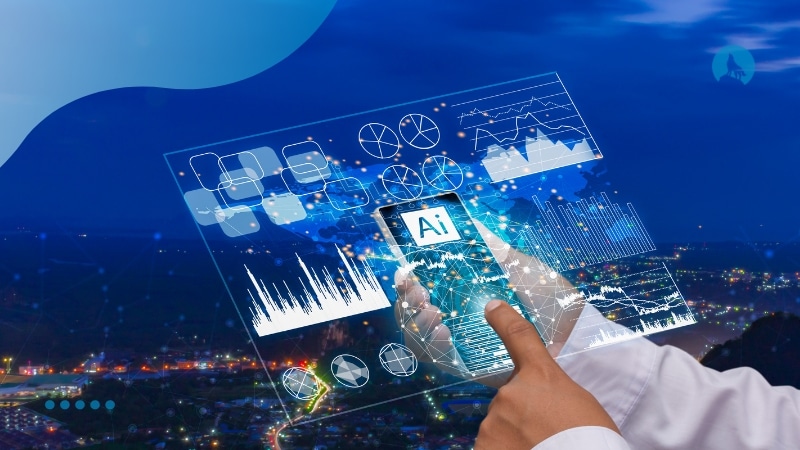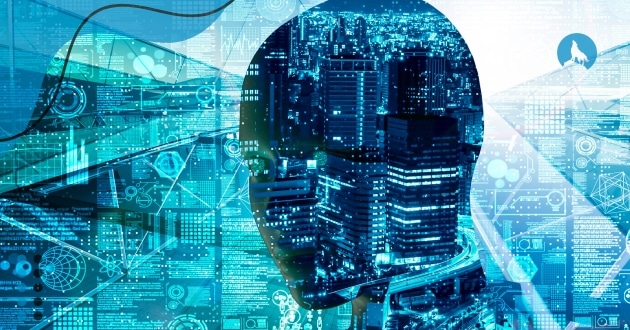The future of AI technology is rapidly transforming the world around us. From healthcare to education, industries are evolving at a pace never seen before, thanks to advancements in artificial intelligence. In this new era of technological innovation,
As we delve deeper into the future of AI technology, it becomes clear that its potential is limitless. With machine learning algorithms becoming more sophisticated and neural networks mimicking human brain functions, AI has opened up opportunities that were once confined to the realm of science fiction.
Despite the hurdles, the future of AI technology holds incredible promise. Many experts believe that we are on the brink of an AI revolution that will lead to breakthroughs in fields like medicine, transportation, and climate change solutions.
Key Advancements in AI
1. Machine Learning and Neural Networks (Future of AI technology)

One of the most significant developments driving the future of AI technology is machine learning (ML). Machine learning enables systems to learn and adapt from data without explicit programming.
Neural networks, inspired by the human brain, have propelled machine learning to new heights, allowing AI systems to process vast amounts of information and make predictions with remarkable accuracy.
These advancements are revolutionizing industries such as finance, where AI can predict stock market trends, and healthcare, where AI is assisting in early disease detection.
2. Natural Language Processing (NLP)
Another critical advancement shaping the future of AI technology is Natural Language Processing (NLP). NLP allows machines to understand, interpret, and respond to human language.
This capability has led to significant progress in creating more natural and intuitive AI interactions, as seen in virtual assistants like Siri and Alexa.
Moreover, NLP is empowering businesses to provide personalized customer service experiences, improve translation tools, and automate tasks that previously required human intervention.
Ethical Considerations in AI Development
1. Data Privacy and Security (Future of AI technology)
As AI systems become more integrated into our daily lives, the issue of data privacy becomes increasingly important.
The future of AI technology will depend on robust security measures to protect sensitive information from cyber threats.
Data breaches, if not adequately addressed, can undermine public trust in AI technologies. Therefore, ensuring that AI systems are designed with strong security protocols and transparent data usage policies is essential for their long-term success.
2. AI and Job Displacement
While AI offers significant economic benefits, it also raises concerns about job displacement. Automation powered by AI threatens to replace jobs across various sectors, from manufacturing to customer service.
The challenge lies in balancing the advantages of AI with the need to retrain and upskill workers whose roles are at risk. Governments and businesses must collaborate to create programs that prepare the workforce for a future where AI plays a central role.
AI and Professional Development
As artificial intelligence continues to advance, it’s not only transforming industries but also reshaping how professionals prepare for the future.
AI-powered platforms are being used to enhance skill development through personalized learning paths, predictive analytics, and automated feedback systems.
This is especially critical as the demand for tech-savvy professionals grows across various sectors. In the future of AI technology, ongoing education and upskilling will be crucial for individuals to remain competitive in the workforce.
For professionals looking to stay ahead of the curve in AI and related fields, exploring advanced learning programs, such as those offered by Caltech’s AI and Machine Learning Program, is an excellent step toward staying at the forefront of this rapidly evolving technology.
The Role of AI in Healthcare (Future of AI technology)
One of the most promising applications of AI is in healthcare, particularly in personalized medicine. AI systems can analyze a patient’s genetic information, lifestyle, and medical history to recommend tailored treatment plans.
This approach is expected to improve patient outcomes by offering more accurate diagnoses and more effective treatments.
The future of AI technology in healthcare also includes innovations such as robotic surgery, AI-powered diagnostic tools, and predictive analytics that anticipate medical trends before they become widespread issues.
The Role of AI in Education
Integration of artificial intelligence into the technology in education benefits sector is revolutionizing how students learn and how educators teach. AI-powered tools can provide personalized learning experiences, automate administrative tasks, and offer valuable insights into student performance.
These advancements are reshaping classrooms and making education more accessible, efficient, and effective. In the context of the future of AI technology, the impact on education will likely grow, offering even more sophisticated tools that can cater to diverse learning needs.
AI in Drug Discovery (Future of AI technology)
Another exciting development in the future of AI technology is its application in drug discovery. Traditional drug development is a long and expensive process, but AI can significantly reduce the time and cost by identifying potential compounds and predicting their effects with greater precision.
This capability is especially valuable in responding to global health crises, as seen in the accelerated development of vaccines and treatments during pandemics.
FAQ: Future of AI Technology
1. What is the future of AI technology?
The future of AI technology promises significant advancements in automation, machine learning, and data processing. AI will become more integrated into various industries, leading to increased efficiency, personalized services, and innovative solutions to global challenges, such as climate change and healthcare.
2. How will AI impact the job market in the future?
AI is expected to both create and displace jobs. While automation may replace repetitive and manual tasks, AI will also generate new opportunities in fields like data science, AI programming, and AI ethics. Upskilling and continuous education will be essential to stay competitive in this evolving job market.
3. Can AI be used to solve environmental issues?
Yes, AI has great potential to help solve environmental issues. From optimizing energy consumption to predicting natural disasters, AI can analyze vast amounts of environmental data to create more sustainable systems and develop proactive solutions to mitigate environmental damage.
4. How is AI transforming healthcare?
AI is revolutionizing healthcare by improving diagnostics, personalizing treatment plans, and enhancing patient care. Machine learning models can analyze medical data more quickly and accurately than traditional methods, leading to early detection of diseases and more efficient healthcare delivery.
5. Will AI replace human creativity in the arts?
AI will not replace human creativity but will complement and expand it. AI tools can assist artists, musicians, and writers by offering new forms of expression and automating some aspects of the creative process. However, human creativity will remain central in guiding these innovations.
6. How safe are self-driving cars using AI?
AI-powered self-driving cars are becoming increasingly safe as technology advances. These vehicles rely on AI to interpret real-time data from sensors, cameras, and GPS to navigate and avoid accidents. However, there are still challenges to address, such as ethical decision-making and regulatory standards, before fully autonomous vehicles are widespread.
Conclusion: Future of AI technology
In conclusion, the future of AI technology holds remarkable potential to transform every aspect of human life. From healthcare advancements to environmental sustainability, AI is already proving its capacity to solve complex global challenges.
However, alongside these advancements come challenges that must be addressed. Ethical concerns about privacy, data security, and the displacement of jobs need to be carefully managed to ensure AI benefits society as a whole.
Ultimately, the future of AI technology will depend on how well we balance innovation with responsibility. By embracing AI’s potential while remaining mindful of its societal impacts, we can harness its power to build a more equitable, sustainable, and prosperous future.



